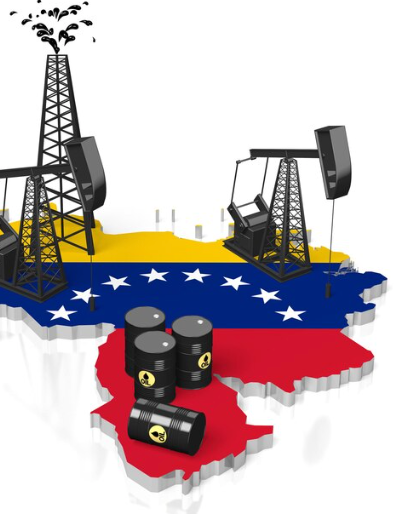# $XOM #Venezuela #Trinidad #Exxon #Energy #Oil #Exploration #Maritime #Geopolitics #Investment #LatinAmerica
What’s Behind Venezuela’s Demand for Exxon’s Exploration Details in Trinidad? Discover the Strategic Implications!
Venezuela news highlights a significant diplomatic move as Venezuela formally requests detailed insights from Trinidad and Tobago concerning Exxon Mobil’s initial field tests. This request pertains to a newly awarded ultra-deep water exploration block situated near the maritime boundary shared by the two nations. The exploration block, granted to Exxon earlier this year, is positioned off Trinidad’s eastern coastline. Given its proximity to Venezuela’s maritime border, it raises critical questions about resource control and regional cooperation.
Venezuela’s Strategic Interests
Venezuela, rich in oil reserves, seeks to safeguard its interests in the face of increasing exploration activities. The Venezuelan government is concerned that Exxon’s exploration in the adjacent ultra-deep water may impact its territorial claims and resource availability. The exploration block lies northwest of the prolific Stabroek Block, which has been a focal point of oil discovery in the region. By demanding clarity on Exxon’s operations, Venezuela aims to assert its sovereignty and ensure that its rights are not undermined.
Regional Dynamics at Play
The request for information underscores the complex dynamics between Venezuela and Trinidad and Tobago. Historically, tensions have simmered over resource extraction and maritime boundaries. Trinidad and Tobago, as a smaller neighbor, must navigate its relationship with Venezuela carefully while pursuing its own energy interests. The exploration activities by Exxon could potentially benefit Trinidad’s economy, but they may also stir diplomatic challenges.
Potential Economic Implications
The implications of this situation extend beyond diplomacy. Should Exxon discover commercially viable oil reserves, both countries stand to benefit economically. Trinidad could see an influx of investment and job creation, while Venezuela might experience increased pressure to maintain its claims over adjacent waters. These developments could influence global oil prices and reshape energy markets, as both nations are critical players in the Caribbean region.
What Lies Ahead?
Looking forward, the diplomatic dialogue initiated by Venezuela could lead to a more structured approach to resource management and boundary agreements in the region. Investors and market observers should keep a close eye on developments, as the situation is fluid and evolving. For those interested in the broader implications of energy exploration, this scenario serves as a reminder of the interconnectedness between national interests, economic stability, and global energy markets.
As the situation unfolds, updates will be crucial for stakeholders in the energy sector. For more insights into stock market trends and implications of geopolitical events, visit our stock section. Additionally, for a broader perspective on how these developments might impact global trade and economics, explore our related articles.
In conclusion, Venezuela’s request for information from Trinidad and Tobago is not merely a diplomatic formality. It reflects deeper strategic concerns that could influence regional stability, economic growth, and the future of energy exploration in the Caribbean. Stakeholders should remain vigilant as the story develops, given its potential to reshape the landscape of oil exploration in the region.











Comments are closed.